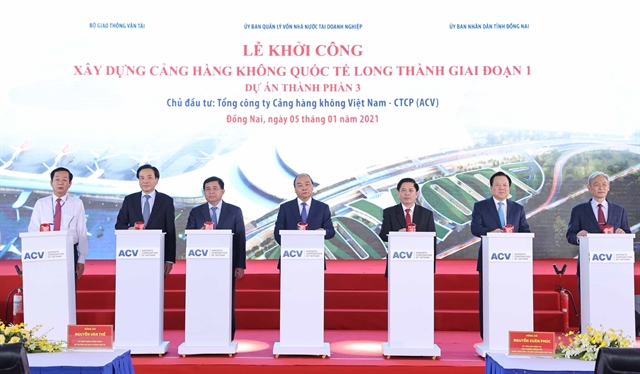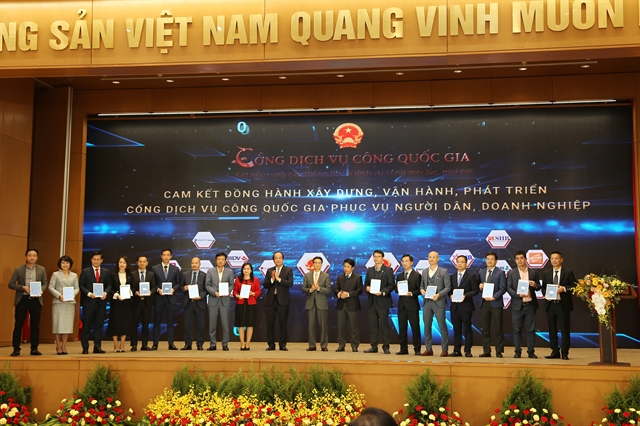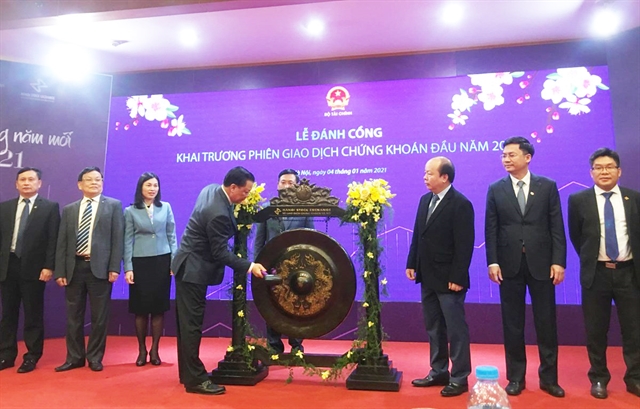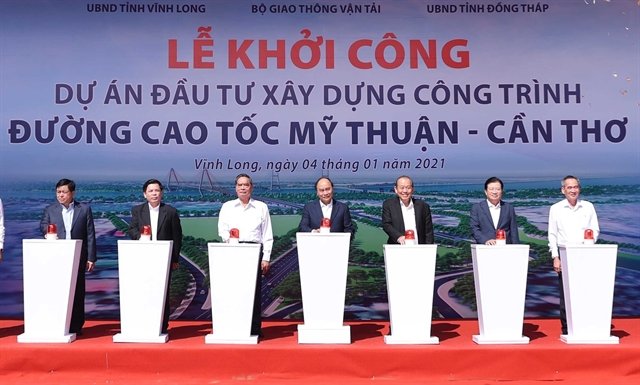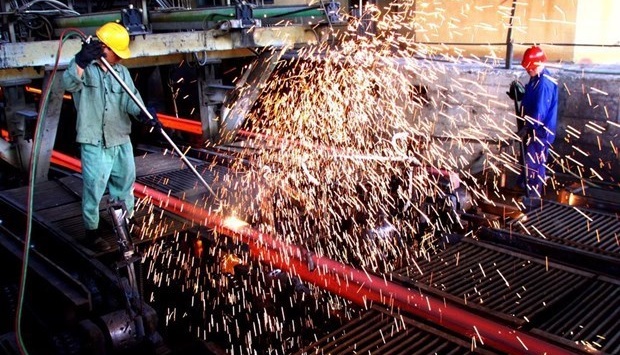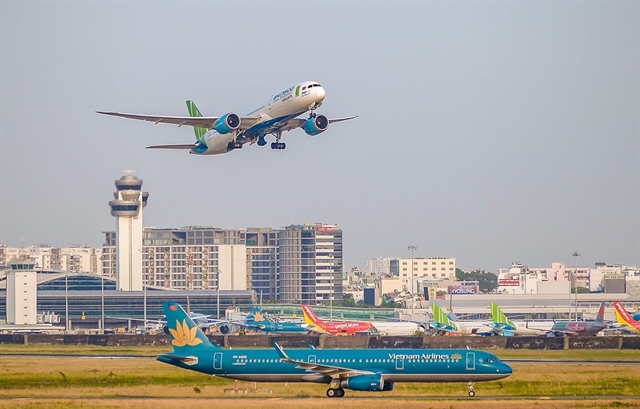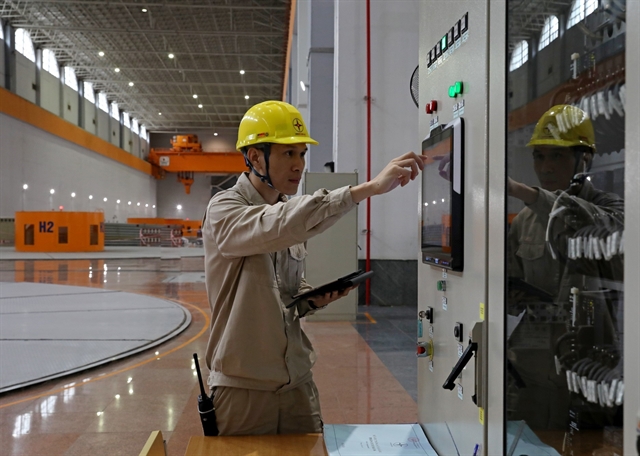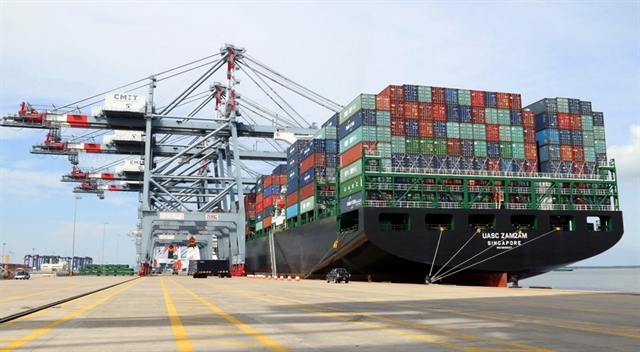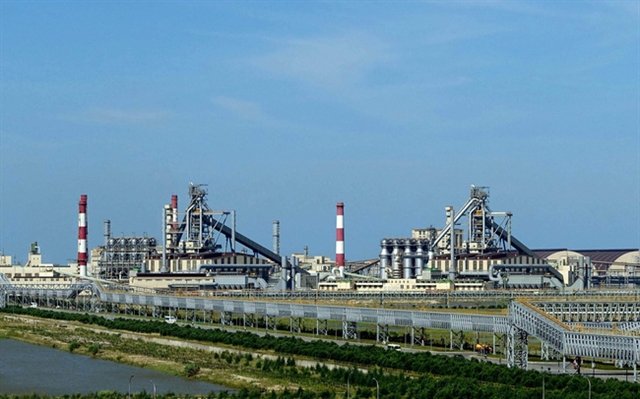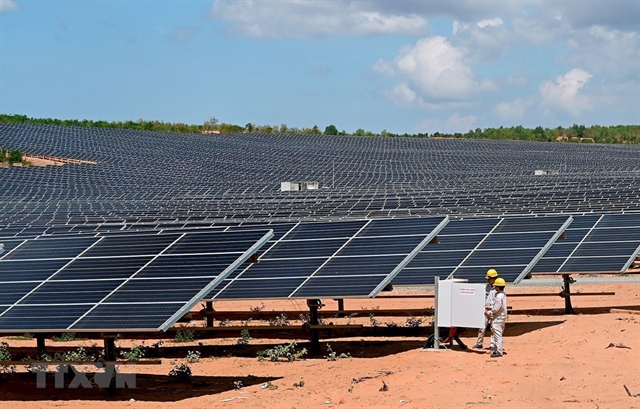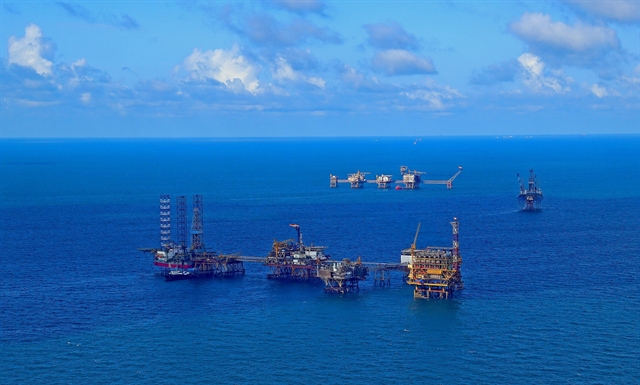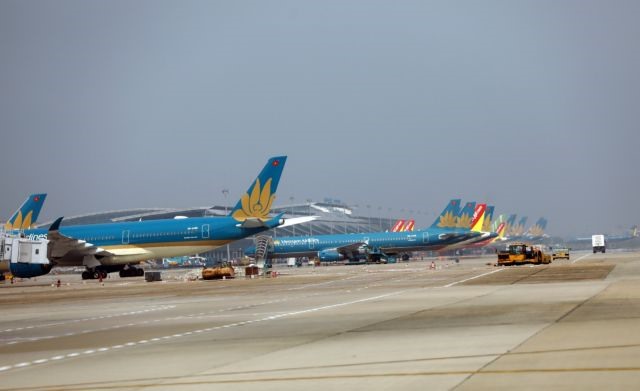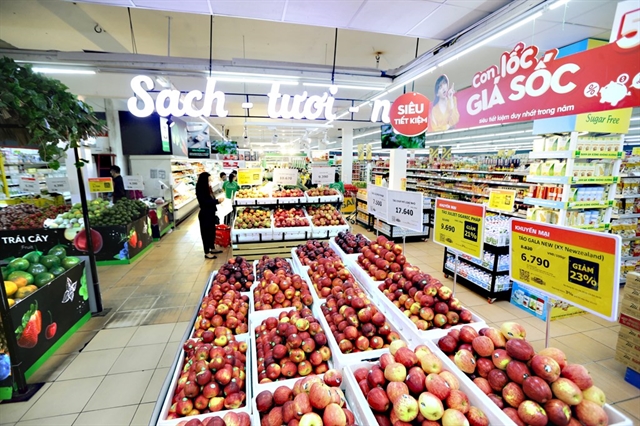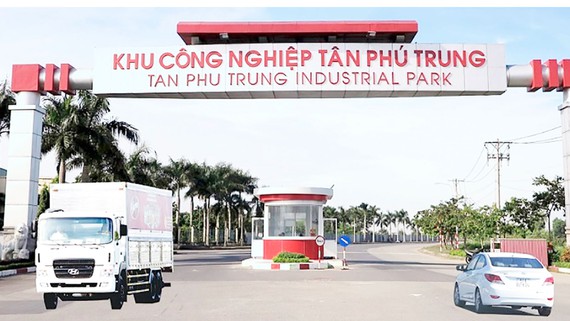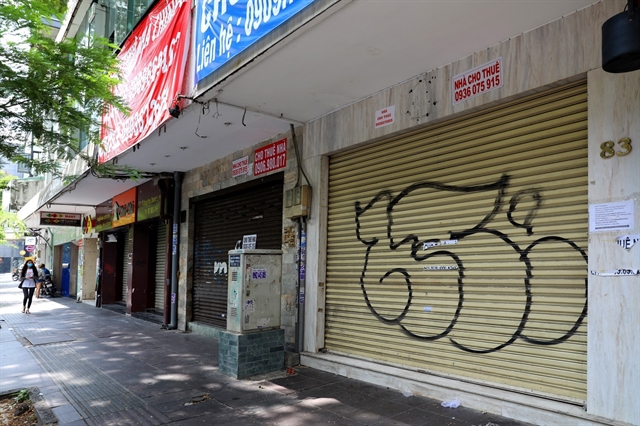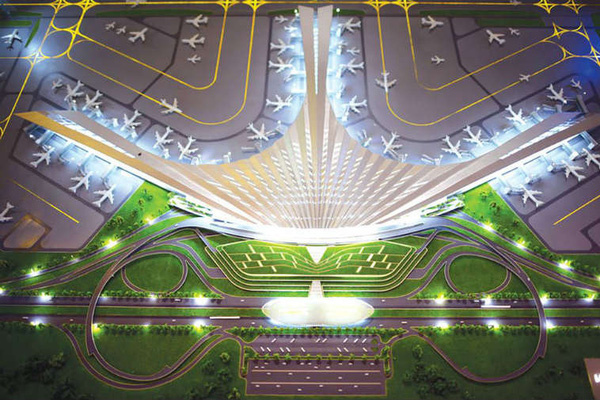
HCM CITY — Construction of the much-awaited Long Thành international airport in the southern province of Đồng Nai and near HCM City began on Tuesday after years of delay.
The delays were caused due to problems related to land acquisition and compensation, but Đồng Nai Province has handed over 1,600 hectares, according to its People’s Committee.
The remaining 200ha required for the first phase of the country’s largest airport would be handed over after affected households are moved to resettlement sites once they are found, it added.
The total lands of 5,000ha for the airport and 364ha elsewhere to build two resettlement sites will be handed over by the second quarter of this year.
The Airports Corporation of Việt Nam (ACV), which will build and operate it, said it had checked the entire land for unexploded bombs and mines.
“We aim to meet deadline for the airport’s completion of 2025,” Minister of Transport Nguyễn Văn Thể said.
In November the Government approved the first phase.
The work has four components: headquarters of Government management agencies, flight management services, essential airport facilities, and other works.
While the ACV, which operates 22 airports across the country, will build most of the new airport, the Government has instructed the Việt Nam Air Traffic Management Corp to build the control tower and other safety-related features.
The Government has also proposed building two highways for better connectivity between HCM City and the airport.
The first phase is expected to cost more than US$4.6 billion.
Some 4,800 households and 26 organisations are expected to be relocated in all.
Prime Minister Nguyễn Xuân Phúc has exhorted the province to speed up land acquisition and compensation payment.
“The construction is a significant step in enhancing public investment and tackle the negative impact of the coronavirus on the economy,” he said.
Once completed -- in three phases at a total cost of VNĐ336.63 trillion ($14.47 billion) -- it will straddle six communes in Long Thành District.
In the first phase, a 4,000m runway, taxiways, an apron, and a passenger terminal with other auxiliary works comprising a total floor area of 373,000sq.m will be built to serve 25 million passengers and 1.2 million tonnes of cargo a year.
In all it will have four runways and four passenger terminals to handle 100 million passengers and five million tonnes of cargo by 2040.
Tân Sơn Nhất International Airport in HCM City has suffered from serious overcapacity issues for years, both in the air and on the ground. — VNS
